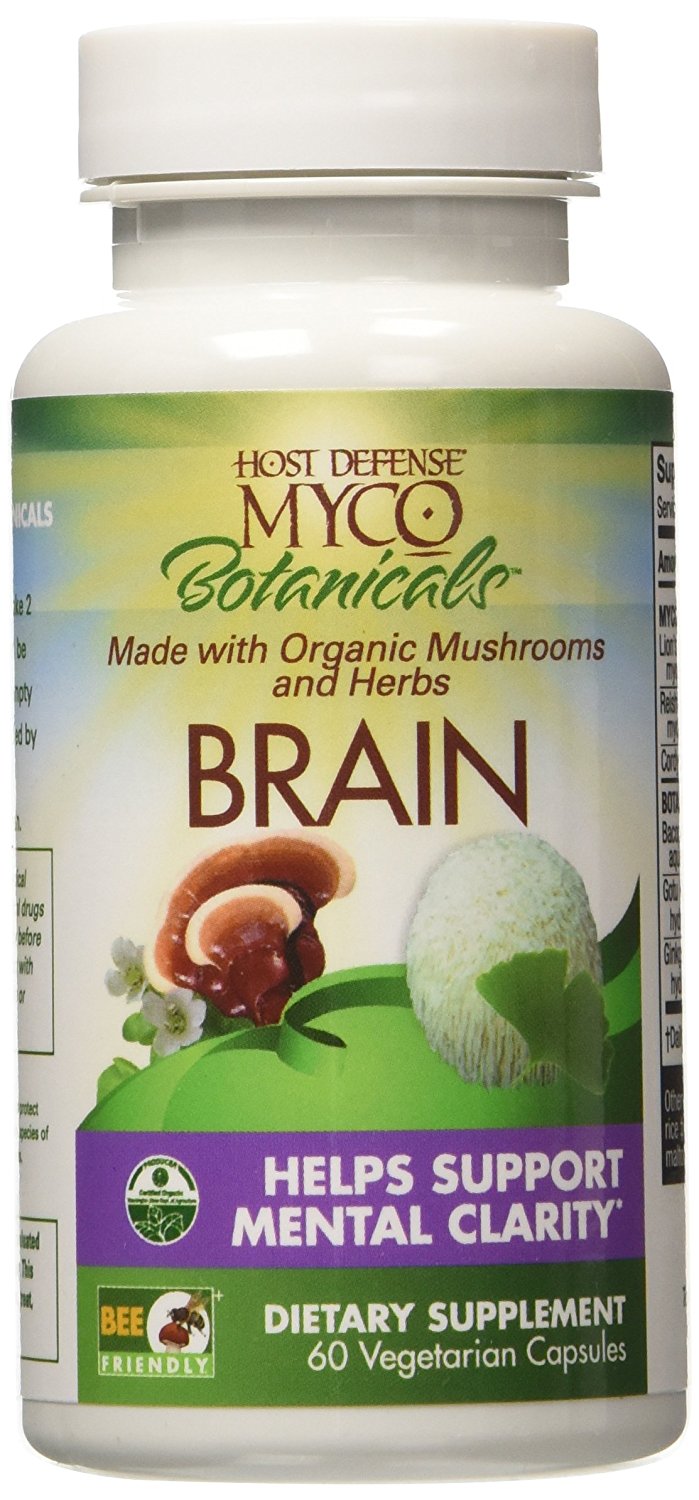
MycoBotanicals Brain is a mushroom-based nootropic supplement to support optimal function of the brain and nervous system.
Get ready for a different kind of brain enhancer. We've covered choline, we've debated L-Tyrosine, and we've deconstructed edgy compounds like phenylpiracetam. This one takes a far different angle:
The right mushrooms are nearly magical, and not for the reasons you’re probably thinking! These funky fungi are chock-full of all kinds of potent compounds and alkaloids that can enhance your performance, health, and even brain function.
It's that last benefit above -- improved brain performance -- that we look for when dealing with nootropics. And this one is far different than any of the others we've discussed in the past.
Today, we zero in on robust mushroom-based nootropic developed by leading mycologist (an expert on all things mushrooms and fungus) Paul Stamets. MycoBotanicals Brain is a unique nootropic supplements that’s very different from anything else you’ve tried.
We’ve got all the details below on this psychedelic supplement, but first, make sure to check the best deal and sign up for alerts from PricePlow:
Host Defense MycoBotanicals Brain – Deals and Price Drop Alerts
Get Price Alerts
No spam, no scams.
Disclosure: PricePlow relies on pricing from stores with which we have a business relationship. We work hard to keep pricing current, but you may find a better offer.
Posts are sponsored in part by the retailers and/or brands listed on this page.
The Background: Who is Paul Stamets?
We recently saw Paul Stamets on the Joe Rogan Podcast, episode 1035:
The above podcast is well worth watching for several reasons, but the part we loved is when Paul explained the benefits of several healthy, non-psychedelic mushrooms, including Lion's Mane, an ingredient in this supplement. Give it a spin sometime this weekend, it's one of Rogan's best podcasts to date.
Now let's get into the nootropic formulation Stamets put together here:
MycoBotanicals Brain Ingredients
Host Defense's "Brain" uses a combination of organically-grown mushrooms and other potent herbs to deliver a product that supports optimal function and health of the brain and nervous system.
-
Lion’s Mane (300mg)
MycoBotanicals Brain uses several well-known species of mushroom including Lion's Mane and Reishi to boost brain function and health. Too bad the doses are on the low end.
Scientifically known as Hericium erinaceus, Lion’s Mane is a mushroom chock full of β-glucan polysaccharides, which have to shown to convey antioxidant, anti-cancer, hypolipidemic, and neuroprotective abilities.[1]
Additional research on the powerful fungi demonstrates it can enhance neurite outgrowth activity (via elevated nerve growth factor)[2] and enhance nerve regeneration, making Lion’s Mane neurogenerative.[3]
This is one of those nootropic supplements that doesn’t seem to get enough press when it really should. The dose does seem a bit on the lower end compared to some other Lion’s Mane-inclusive supplements though....
-
Bacopa (250mg)
Bacopa Monnieri is one of the oldest Ayurvedic herbs that’s been used for centuries as a way to combat depression and improve cognition. Bacopa is rich in bacosides, triterpenoid saponins that regulate neurotransmitter levels in the brain, especially GABA, acetylcholine, dopamine, and serotonin.[4,5]
If you want to know even more about this proven nootropic supplement, check out our full in-depth article titled: Bacopa Monnieri: The “Feel Good” Nootropic.
While Bacopa is truly awesome, the knock here is that we don’t know what the standardization is, which means we have no idea how much bacoside content this gives.
-
Reishi (150mg)
Reishi is another mushroom that’s a vastly underrated, yet highly effective, nootropic supplement. It’s been extensively used in Chinese Medicine, so much so, it’s garnered the moniker “mushroom of immortality”.[6] The mushroom is well documented to provide anti-anxiety and anti-cancer benefits, but it also exerts some pretty profound effects on the brain too.
Reishi increases levels of nerve growth factor (NGF) and brain-derived neurotrophic factor (BDNF), important brain chemicals associated with strengthening neurological connection and boosting mental performance.[7]
Again the dosing seems low though as most studies use amounts of the extract ranging from 1.4-5.2 grams, substantially less than you’re getting here.
-
Gotu Kola (130mg)
Gotu Kola is another Asian medicinal herb rich in triterpenoids and carotenoids that mainly used for its mood and cognition-boosting properties. We’ve recently gotten up close and personal with this herb, in our mega-post titled: Gotu Kola: An Herb to Improve Mood and Memory. So check that out if you want ALL the details, but as an overview, gotu kola (centella asiatica) lowers anxiety, enhances neurogenesis, and increase axon and dendrite growth in brain cells.[8,9,10,11]
-
Ginkgo Biloba (100mg)
Ginkgo Biloba is an interesting ingredient and used extensively throughout the world, but is the dosing here enough?
One of the most popular and widely used brain-support supplements is ginkgo biloba. Traditionally, the herb was used to treat memory and blood disorders, and this has been backed up by more modern-day studies.[12]
Additional research on gingko biloba suggests it can improve mental function in young people[3], but it’s been most effective in older folks battling Alzheimer’s.[14,15,16]
-
Cordyceps Militaris (50mg)
Probably the most well-known of the mushrooms in Brain is Cordyceps Militaris. The fungi has been shown to offset fatigue, increase endurance and oxygen utilization, and enhance cellular energy.[17]
Other studies have shown that cordyceps can improve aerobic capacity during exercise.[18]
The issue here is that we don’t know what the extract is standardized for, which means the product may widely from one batch to the next.
Better than Sinensis for multiple reasons!
Cordyceps -- One of the biggest anomalies in the supplement industry. And we think we've figured out why.
The good news is that they're not using cordyceps sinensis, which is often misidentified and all of the studies done pre-DNA-identification may be flawed. And either way, militaris is more potent with more cordycepin, the primary ingredient!
We discussed this in our Cordyceps Crackdown article well over a year ago, and it's crazy to hear Paul Stamets talk about the very same thing in the Joe Rogan podcast this month!
Dosing
Consume 2 capsules one per day. Capsules can be taken with or without a meal.
A New Kind of Nootropic
Now that's an amazing spin on nootropics from an expert in the field of mushrooms, bringing his world into ours.
MycoBotanicals Brain represents an unconventional twist on the popular nootropic supplements flooding the market these days. While mushrooms are truly magical in their multitude of effects, the non-disclosure of standardizations makes us wonder how much you'll feel the benefits.
Thankfully, the price is right, so it's worth a try if you're looking for something 'alternative' to Western Medicine and the typical nootropic compounds (like choline and ALCAR and the racetams) we often blog about here.
Host Defense MycoBotanicals Brain – Deals and Price Drop Alerts
Get Price Alerts
No spam, no scams.
Disclosure: PricePlow relies on pricing from stores with which we have a business relationship. We work hard to keep pricing current, but you may find a better offer.
Posts are sponsored in part by the retailers and/or brands listed on this page.

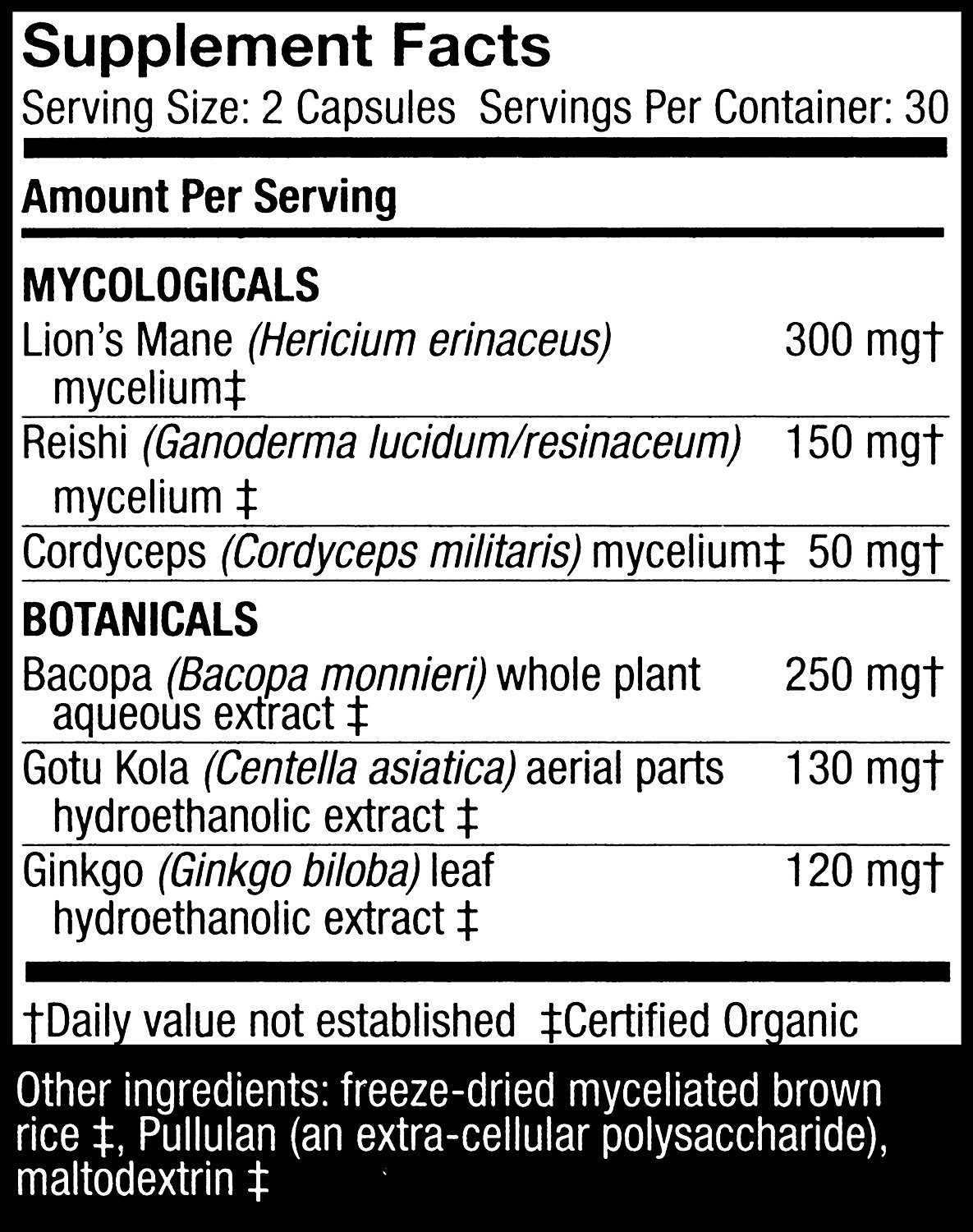
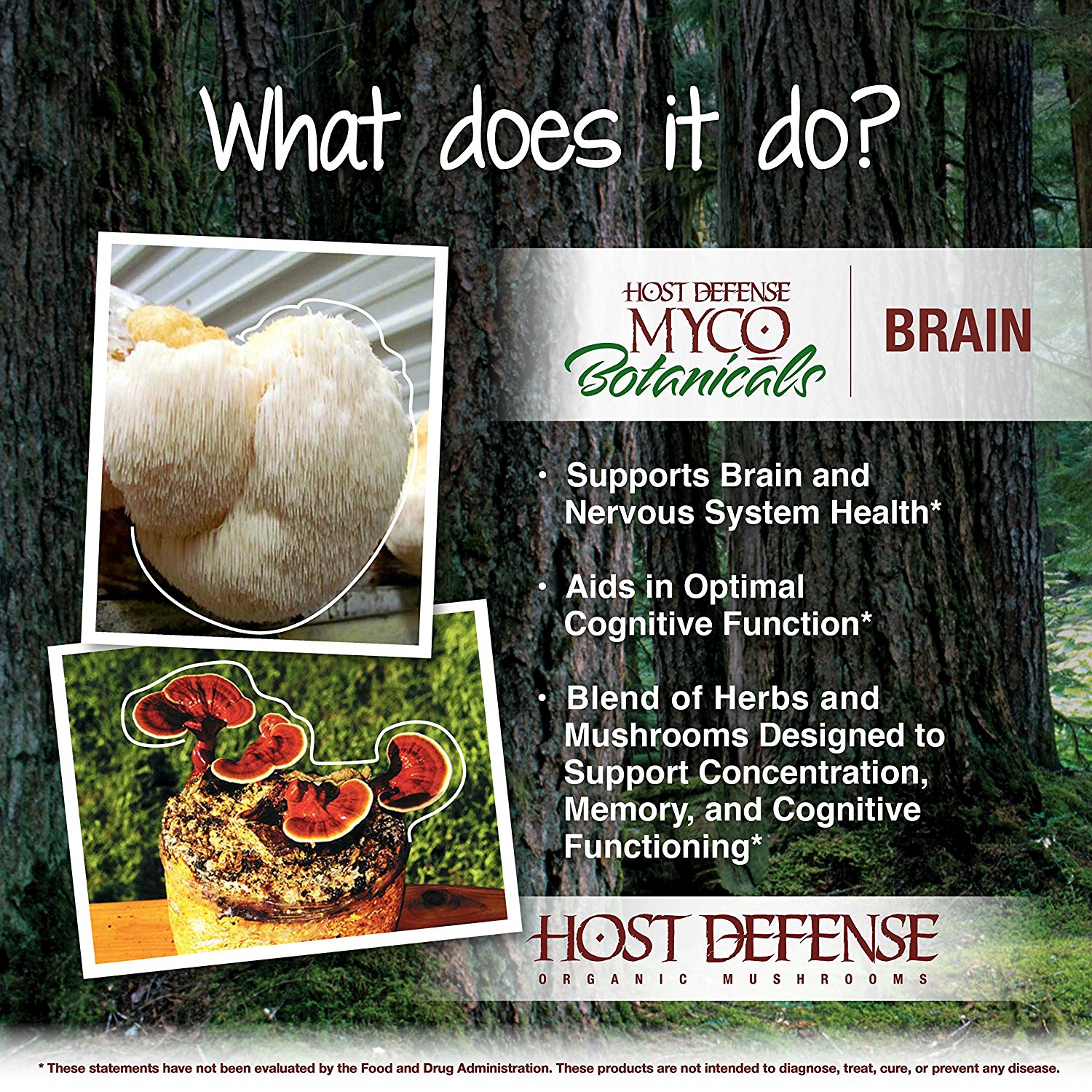
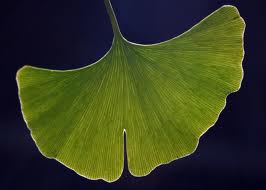
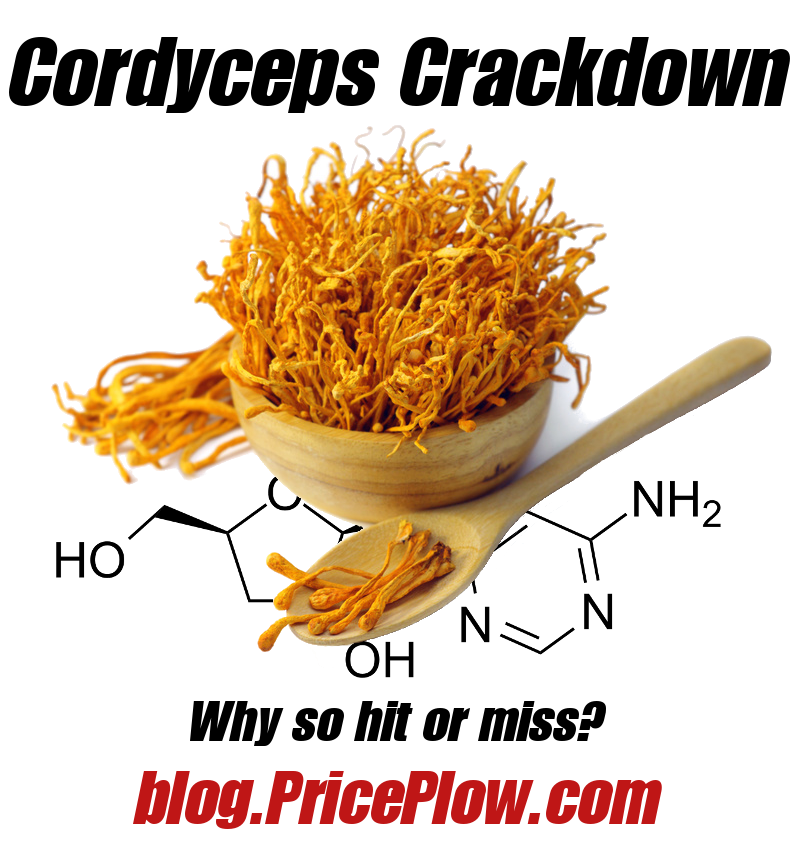


Comments and Discussion (Powered by the PricePlow Forum)